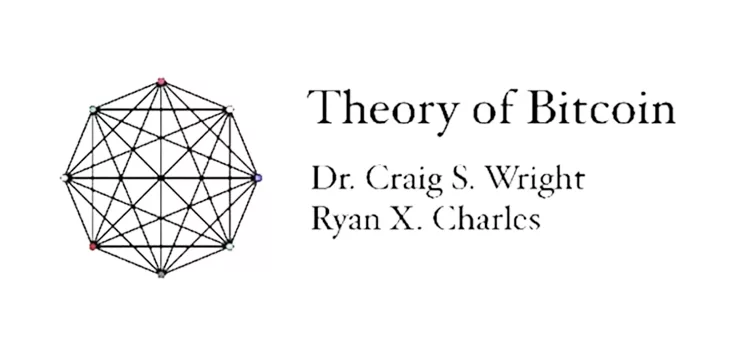|
Getting your Trinity Audio player ready...
|
Here’s a list of principles Bitcoin was bound to follow, if it’s to succeed and keep its integrity intact. Actually those principles can also been seen as a set of constraints. What are they? Watch the third episode of “Theory of Bitcoin: Bit” with Bitcoin creator Dr. Craig S. Wright and Money Button’s Ryan X. Charles to find out—and we’ll give you a few of them here as well.
If this series is starting to feel more like a course than interviews, it’s because it is. Charles is starting with the (informal, for now) thesis that “Bitcoin isn’t just a solution to digital cash, it’s the only solution.” And whether that thesis is proven or disproven, he’ll have plenty of educational material. “Theory of Bitcoin” is your chance to download that material into your brain before anyone else.
Much of this episode is devoted to a discussion of economic incentives (principles: “security is always economic,” and “attacking the network must cost more than being honest”), and Wright and Charles agree these incentives are the true security model for Bitcoin. Discard the phrase “secured by cryptography” you hear among people who think they understand more than they do. The Bitcoin network is secure because its processors (aka miners) are incentivized by profit and professional reputation.
Subtleties of the profit motive, and more
Dr. Wright reminds everyone that “profit” by itself isn’t an incentive, it’s what you can buy or achieve with those profits. Maybe it’s consumer goods, but it could also be status, power, influence, lifestyle. He also notes again that there are other ways to achieve those things than money, or at least other opportunities. The average low-level drug dealer might earn less than the average McDonald’s worker, but there are quicker paths to the higher levels of the industry… for certain personality types.
This leads to a discussion of crime, and the reasons people might choose that life. Charles notes there’s often a conflict between determinist science and the notion of free will, and they agree the existence of laws can only be justified if there is free will. Thinking otherwise is dangerous, Dr. Wright says, and can lead to nihilism—something he obviously detests. “The worst evil in the universe is nihilism. It’s the void.”
Charles suggests principles from all aspects of Bitcoin, from Computer Science (“there must be no central point of failure”, “proof of work is a kind of signal”) to legal (“Bitcoin needs to comply with regulations”). All these suggested principles are up for discussion here, and it’s important to understand why (or why not) they apply. Sometimes there’s extra detail required—the Bitcoin network is also self-healing, as well as having no central failure point. As for the law, yes it does need to comply or it won’t be permitted to exist (or widely used enough to achieve its goals).
“Bitcoin is the immutable audit log of everything,” Charles suggests as a principle. Dr. Wright points out he sees it as “a bit more than that.” It’s more a universal chain of accepted truth. Once it’s established that everyone trusts what’s stored on the blockchain, everything follows from that. “It’s more like, there’s only one set of books,” Dr. Wright says, noting that it’s always possible for a company or organization to keep two sets of books, both of which are auditable (well-known examples being Bernie Madoff and Enron). But the important part is having trust in that one single book—the blockchain.
Agreements and records, like computer programs, are only as good as the information put into them. Two parties can agree to accept the outcome of a computer-generated result, but that agreement is the important part. Likewise, it’s the important aspect of the Bitcoin blockchain.
And yes, proof of work is a signal. Much like banks of the past lived in grandiose buildings designed to look permanent and solid, they wanted the public to know they were safe and would be around for generations to come. Showing people you’ve made an effort to achieve something is a signal you can be trusted to maintain that effort.
However, value derived from effort shouldn’t be confused with Marxist theory of labor—showing off your effort can have value, but that doesn’t mean it does have value.
Meritocracy is also a strong theme in this episode, the discussion moves slightly into motivational territory as Dr. Wright again gives details from his own early life and uses it as a sign that people can achieve anything, if they have the ability and apply it correctly.
Coming up next
“Make sure there’s enough time for random ranting,” Wright replies when Charles asks if there’s anything he should consider for future episodes. If you’re also a fan of the tangental commentary Dr. Wright frequently serves up on culture, politics, history, society, and… well pretty much everything—there will be plenty of that. There’s plenty in this episode too, of course.
To watch previous episodes of the Theory of Bitcoin, check the Theory of Bitcoin YouTube playlist here.

 07-05-2025
07-05-2025 





